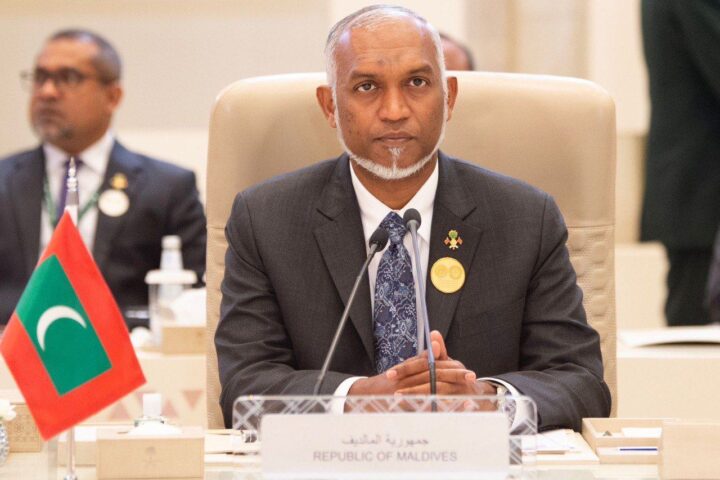SUVA, Fiji — Beijing is once again leveraging its tourism power to push small island nations into aligning with Chinese geopolitical goals, focusing its pressure on the Pacific archipelago of Palau. Palau’s President, Surangel Whipps Jr., has raised concerns about Chinese attempts to influence his country’s diplomatic recognition of Taiwan by promising an influx of Chinese tourists.
Whipps shared that during his 2020 campaign for presidency, he was approached by a Chinese ambassador from a neighboring country, who pledged that a shift in Palau’s stance on Taiwan would bring a million Chinese visitors to the island nation, which heavily relies on tourism. “That continues to be the overture,” Whipps said. “They say, why are you torturing yourselves? Just join us and the sky’s the limit.”
Despite these offers, Whipps has remained firm, rejecting the idea of compromising Palau’s diplomatic stance in exchange for economic benefits. “We don’t need a million tourists,” Whipps stated. “It’s not always about how much money we get.” However, his resistance appears to have come at a cost, as Palau has faced a series of punitive actions from Beijing. In May, Whipps blamed China for a major cyberattack that led to the theft of 20,000 government documents. Though conclusive evidence against Beijing was lacking, the timing and context left little doubt in the minds of many observers.
Palau’s tourism sector, too, has been affected. Representatives from Palau’s tourism industry were denied visas to attend a significant conference in Macau in May. In June, warnings circulated in Chinese state media and on official WeChat channels, cautioning tourists about alleged safety issues in Palau. These warnings have had a noticeable impact, with Chinese tourists to Palau dropping to half the previous numbers, now accounting for only 30% of the total tourist influx in 2024. At its peak, Chinese tourists made up 70% of Palau’s visitors.
Palau is not alone in facing Beijing’s tourism diplomacy. Other Pacific nations like Tuvalu and the Marshall Islands, which also maintain diplomatic ties with Taiwan, have similarly seen Chinese tourism used as a means of coercion. The economy of these islands largely hinges on tourism, making them particularly vulnerable to fluctuations influenced by Beijing’s policies.
China’s use of tourism as a diplomatic tool is not confined to the Pacific islands. In recent years, Beijing has employed similar tactics across different regions to promote its strategic agenda. In 2010, after Chinese dissident Liu Xiaobo was awarded the Nobel Peace Prize, travel agencies were instructed to stop selling Norway as a tourist destination. The number of Chinese tourists visiting Japan dropped sharply in 2012 amid a territorial dispute over the Senkaku Islands.
Conversely, nations that align with Beijing’s political interests often see favorable tourism boosts. Fiji, a Pacific island nation that does not recognize Taiwan diplomatically, was granted Approved Destination Status (ADS) by China, leading to a surge in Chinese tourist numbers. The promotion of Fiji included airing a popular Chinese travel documentary featuring the country and targeted tourism campaigns.
Sri Lanka experienced a similar wave of Chinese tourism after aligning itself with Beijing’s “string of pearls” strategy by allowing the construction of the Hambantota Port. To bolster its influence, Beijing facilitated direct flights between Chinese cities and Colombo and organized events like mass wedding ceremonies, which were heavily covered in both Chinese and Sri Lankan media.
These strategic maneuvers have a significant impact on international relations, as seen in voting patterns at the United Nations. Analysis suggests that countries receiving a high volume of Chinese tourists, often through ADS agreements, tend to vote in alignment with Beijing on global security issues, highlighting the depth of China’s influence.
As Palau heads towards elections in November, the stakes are high for Whipps, who must navigate the delicate balance of national sovereignty and economic dependency. For many small nations, Beijing’s tourism diplomacy represents not just an economic opportunity but a complex geopolitical challenge. Palau’s defiance underscores the broader struggle faced by smaller states in maintaining their foreign policy autonomy against the economic leverage wielded by global powers like China.















